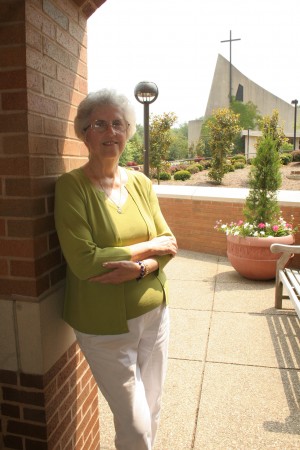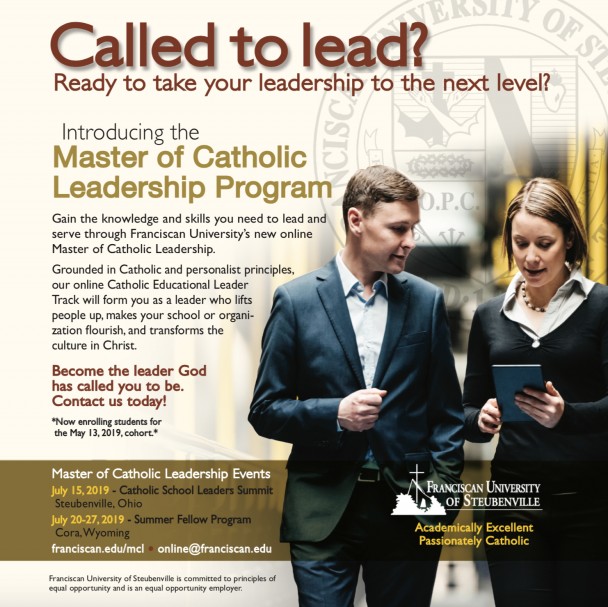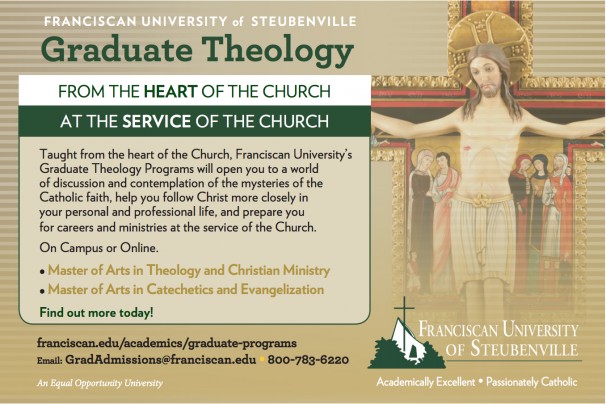What Is Holiness?
Surely one of the most beautiful, one of the most enduring, and one of the most sublime teachings of Vatican II is the universal call to holiness in Lumen Gentium, chapter 5. I have never reread this chapter without feeling an increase of my own zeal for answering this call, even as I become more aware, at the same time, of how much I fall short. Still, it is so beautiful, it makes me want to persist.
But what is holiness? I want to suggest that it is not, in the first instance, a concept abstracted from concrete holy persons and holy things, a category into which they are fitted because they conform to its defining features. For holiness, as Lumen Gentium puts it, is nothing else but “the perfection of love (caritas)” (LG 39; cf. 42),[1] and there is nothing more concrete than this perfection, for it has as its content Jesus Christ, “love divine all loves excelling / joy of heaven to earth come down” (Charles Wesley). He, “together with the Father and the Spirit, is hailed as ‘alone holy’” (LG 39). The meaning of the word “holy” comes from him who is “alone holy,” not the other way around, as if the meaning of “holy” is established independently and God is then found to qualify.
The same is true for love. The Trinity is “alone holy” because the Trinity is “an eternal exchange of love” (CCC 221) such that “God is love” (1 Jn 4:8). The sentence is not reversible, to “Love is God,” which would invite us to fill in the content of “love” with whatever is currently fashionable on greeting cards and then to think that God is that. Luckily, the content of what Love is, and therefore what God is, and therefore what holiness is, is filled out for us concretely in Jesus Christ, who “loved the Church as his Bride, giving himself up for her so as to sanctify her” (see Eph 5:25-26; LG 39). The sacrifice of Christ on the Cross “‘for the sins of the whole world’ (1 Jn 2:2) expresses his loving communion with the Father” (CCC 606), since he “embraces in his human heart the Father’s love for human beings,” and loves us “to the end” (Jn 13:1; CCC 609).
This love is the only love that has not even the slightest taint of self-interest. It is the love that “emptied itself” of the “form of God,” and received the “form of a servant” (Phil 2:5). There can be no self-interest in this because God already has everything, is everything, he needs or wants; so, the self-emptying is pure gift. Only such a love can be the medium of true human communion. And if that weren’t enough, the Word not only “became flesh” (Jn 1:14) but also “sin” (2 Cor 5:21), meaning that he did not take on a human nature in its unfallen condition, as he was clearly entitled to, but rather took flesh under the conditions of the Fall, subject to suffering and death. Though sinless, he entered into solidarity with sinners, accepting our lot as his lot, thereby making us his, giving us a new solidarity in his love, so that we now have a new way of saying “we” as human beings that is no longer in “Adam” only but in his love, that of the Second Adam.
Baptism incorporates us into this new “we,” into being “his.”
Editor's Reflections: Barbara Morgan—Pursuing Holiness
 What is holiness? In our lead article, Dr. John Cavadini describes holiness as the Second Vatican Council did, as “the perfection of love.”[1]
What is holiness? In our lead article, Dr. John Cavadini describes holiness as the Second Vatican Council did, as “the perfection of love.”[1]
AD: Conference for Evangelization & Catechesis July 15-18, 2019
Annual St.
AD: NEW Master of Catholic Leadership Online Program
To learn more about this NEW Master's Degree Program in Catholic Leadership click here. Or call (740) 284-5239.The first cohort for this program will start May 13, 2019. It will be capped at 20 students, and there is a March 1, 2019, early deadline.

AD: Graduate Theology Degrees
To learn more about Graduate degrees at Franciscan University click here or call 800-783-6220.

AD: How to Share & Live the Faith with Others
This is a paid advertisement in the January-March 2019 issue. Advertisements should not be viewed as endorsements from the publisher.
Catholic Education—A Road Map: The Work of Sofia Cavalletti, Catechesis of the Good Shepherd
Sofia Cavalletti was arguably the most effective catechetical theorist and practitioner of her era. Born in 1917, she belonged to a noble Roman family, who had served in the papal government. Marchese Francesco Cavalletti had been the last senator for Rome in the papal government, prior to its takeover in 1870 by the Italian state. Sofia herself bore the hereditary title of Marchesa, and lived in her family's ancestral home in the Via Degli Orsini. In 1946, the young Sofia Cavalletti began her studies as a Scripture scholar at La Sapienza University with specializations in the Hebrew and Syriac languages. Her instructor was Eugenio Zolli, who had been the chief rabbi of Rome, prior to and during World War II and who had become a Catholic after the war. Following her graduation, Cavalletti remained a professional academic for the whole of her professional career.
Cavalletti's involvement with catechetics came about by chance, in 1952, after she was asked to prepare a child for his first communion. Soon after this experience, Cavalletti began collaborating with Gianna Gobbi, a professor of Montessori education. Together, they developed what came to be known as the Catechesis of the Good Shepherd, painstakingly creating materials that would serve the religious needs of children from the ages of three to twelve years. Taking the Montessori sensitive periods as a starting point and guided by the response of real children as the “reality check,” Cavalletti refined her understanding of the religious experiences that children were likely to respond to at each stage of their development. She would create materials and make them available to the children. If the material was not used, she determined that it had not met the mark and she would dispose of it, irrespective of how much effort she had put into it.
Very early in her work, Cavalletti discerned the central role of “wonder” in a child’s religious development and she realized that for young children (and indeed for every human being), wonder is evoked by “an attentive gaze at reality.”[i] Consequently, young children were encouraged to begin their relationship with God by recognizing, one by one, the gifts offered to them in the created world. To meet this need, the Montessori “practical life” works were found to be ideal. Children were given tasks such as flower arranging, slow dusting, leaf washing and the like. The experience of Montessori classrooms for over a hundred years has born witness to the effectiveness of this approach. Engagement with concrete “hands on” activities seem to be the basis not only of religious development but for learning of any kind.
The careful observation of the needs of real children by Montessori had identified the basic stages of learning, (outlined in my previous article). Cavalletti summed this up in a simple axiom: first the body, then the heart, then the mind. As the twentieth century progressed, she evaluated new ideas in education, Biblical scholarship, and theology. Cavalletti did not easily fall prey to a widely reported educational phenomenon, the “band wagon effect.” She was an “action researcher” who allowed herself to be guided by the reactions of the children she was working with. If a learning material failed to engage the children, it was discarded and alternatives sought.
One of the most striking and commonly reported phenomena of the Catechesis of the Good Shepherd is that children seem to be able to arrive at profound theological understandings for themselves—without being told.
Children's Catechesis: Forming a Culture of Prayer within the Home
What do you remember of your first day of Grade One? My memory gave prophetic purpose and life-long value to my life! After taking roll and assigning seats to her 120 students (not a typographical error!), petite Sister St. Rose announced that our first lesson would be the most important lesson of our lives. She distributed our first catechism book and directed us to lesson one. With pencil in hand, we circled question numbers one, two, and three. Sister instructed us in the meaning of the words and told us to have our parents teach us how to say the words with our eyes closed. My mother proctored homework time. She amazed me when, without looking at the book, she knew the answers to the three questions. More amazing yet was dinner conversation that night. Mom said, “Pat, tell dad what you learned at school today.” I looked my dad straight in the eye and declared with conviction, “I learned why God made me.” Without skipping a beat my father proclaimed, “Pat, God made you to know him, to love him, and to serve him in this world, and to be happy with him forever in the next.” Dad’s reply had an exponential influence because he had justly earned the nickname of “Daddy Old Bad Boy.” Dad’s misbehaviors were legendary and yearly Santa Claus deposited coal in his stocking because of it. So, when this man knew why God made me, I embraced the belief hook, line, and sinker! Echoing the sentiment of Robert Frost1, “that has made all the difference.” Coming to know God—and growing in that knowledge and experience over time—is our universal call, our primary vocation. Knowledge of God and the ways of God leads to love. A person who does not love God does not know God! And whenever any of us love another person we can’t help but overflow into service for them. Prayer: Both Action and Attitude As “First Heralds of the Gospel”2 parents bear the privilege and the responsibility to introduce their children to God; to sensitize them to recognize the ways of God; to learn how to speak to God; to distinguish God’s voice and will from other voices; and to respond to God in age-appropriate ways. Prayer is the common thread for these goals. What is prayer? Definitions abound. Even Wikipedia weighs in on the topic. My core definition, and one that I offer to contemporary parents, comes from that same first grade catechism: “Prayer is the lifting of our minds and hearts to God.” Prayer can be vocal or mental, formal or informal, private or corporate, scheduled or spontaneous. Prayer changes through the ages and stages of one’s life, just as the quality and style of communication changes over time between persons who are growing in relationship. Prayer is communication with the One who knows us better than we know ourselves and Who loves us beyond our ability to comprehend such love. Consistently God communicates God’s love and life-giving will, though we are frequently unaware or inattentive. Often the busyness of life blocks recognition of God’s movements. The noises of our environment drown out the whispers of God’s love. Regardless of our awareness, God continues to speak, to reach out, and to offer friendship. Prayer is both an action and an attitude. Any person, place, stimulus, or event that lifts our minds and hearts to God can be a catalyst of prayer. Spiritual practices that are understood and faithfully embraced raise our spiritual consciousness. Environments, customs, and rituals that tutor the soul or recall God’s presence can stir holy desire and affection.
Changing the Subject: Forming People to Encounter Mystery
 There is a scene in the film Good Will Hunting where Sean (Robin Williams) and Will (Matt Damon) share a pivotal conversation on a bench overlooking a swan-filled lake. The week before, Will quickly and incisively interprets a painting that Sean had created and hung in his office.
There is a scene in the film Good Will Hunting where Sean (Robin Williams) and Will (Matt Damon) share a pivotal conversation on a bench overlooking a swan-filled lake. The week before, Will quickly and incisively interprets a painting that Sean had created and hung in his office.
Tailored Accountability: The Art of Pastoral Accompaniment
This article opens with stories of Jan Tyranowski and Karol Wojtyla, Saints Ignatius, Peter Faber and Francis Xavier to supply us with a picture of the value of real pastoral accompaniment, wherein a more personally directed style of formation takes place, either alongside traditional classroom catechesis, or, for a season at least, instead of the classroom lecture style of formation. Pastoral accompaniment, whether formal or informal, takes place when a spiritually experienced mentor walks with a less-experienced disciple through the steps of gaining maturity. It could be called a type of spiritual life-coaching. In recent years, the Holy Spirit has been calling for a renewal of pastoral accompaniment in the Church. Pastoral accompaniment is not the same as spiritual direction, although there are similarities and overlaps. The term “spiritual friendship” or “spiritual mentoring” might be more apt to convey the sense of what the Spirit seems to be inviting the Church to develop. Accompaniment happens when one who has been practicing the spiritual life with some intentionality advises another who wants to grow in the spiritual life.


